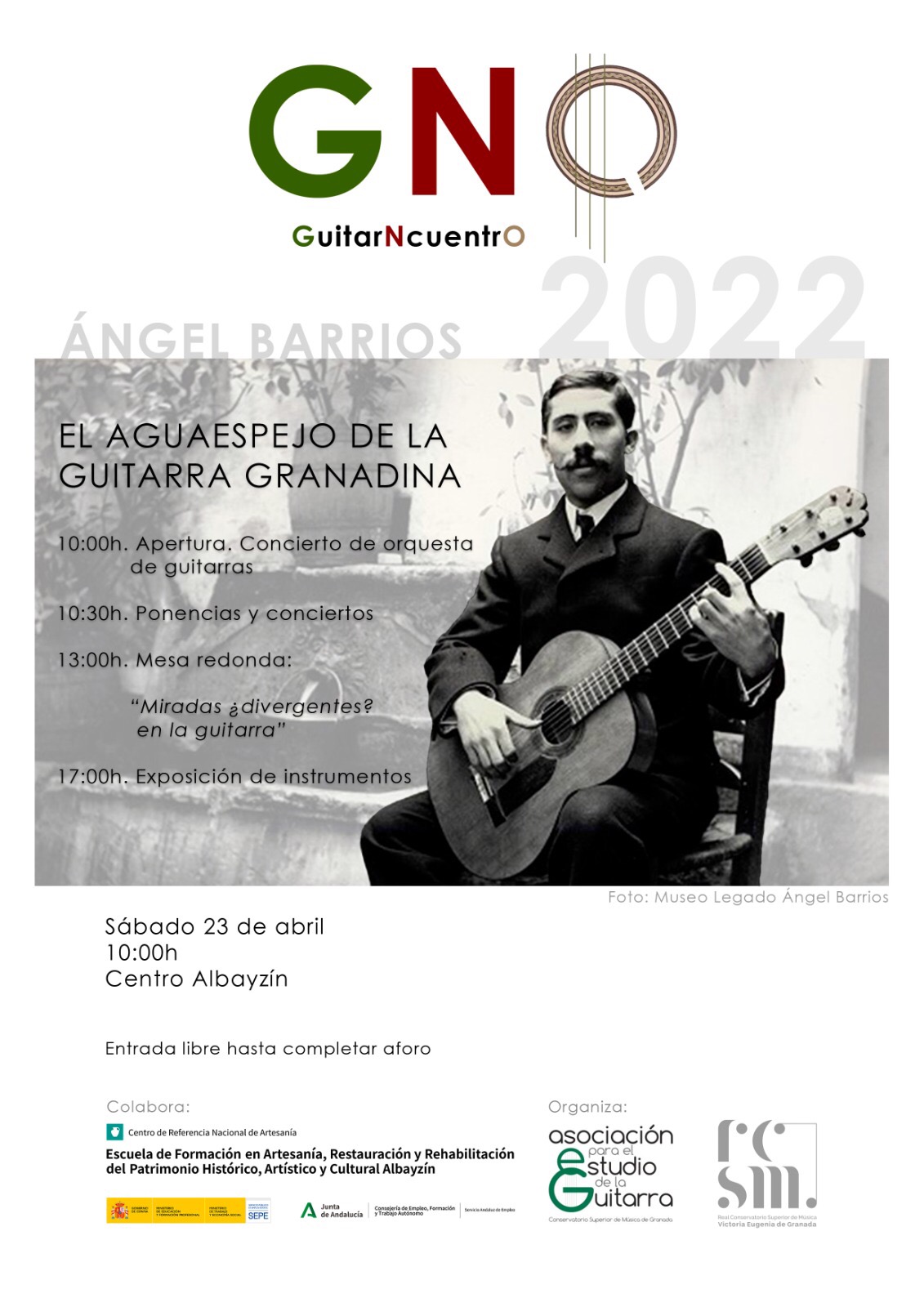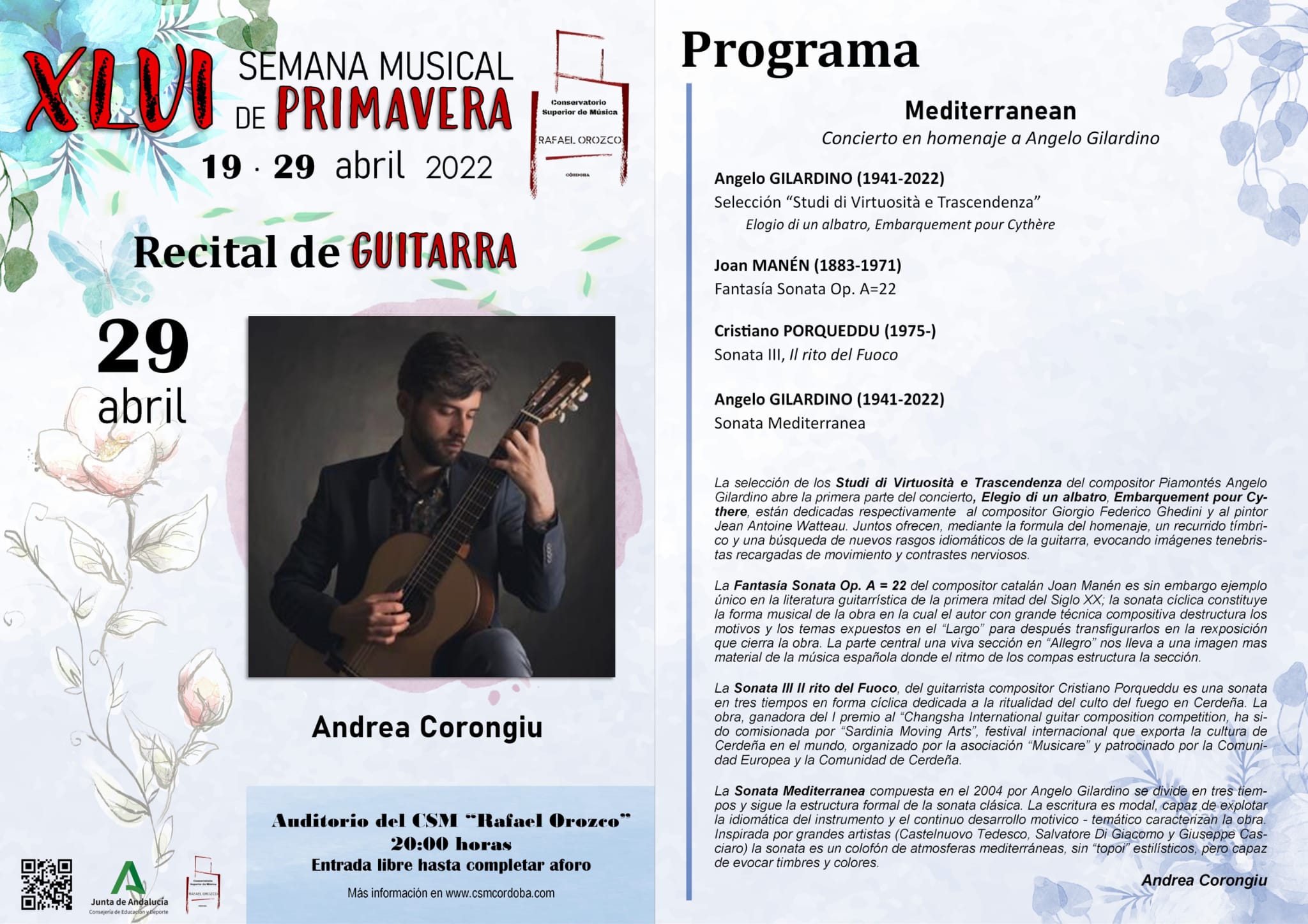A new customer took possession of his new guitar yesterday. Just as many of my customers this is a conservatory student who is beginning his final phase of studies. My concert model is the usually the first choice of these students. In this case I made a special rosette and the client chose Pagos tuners. 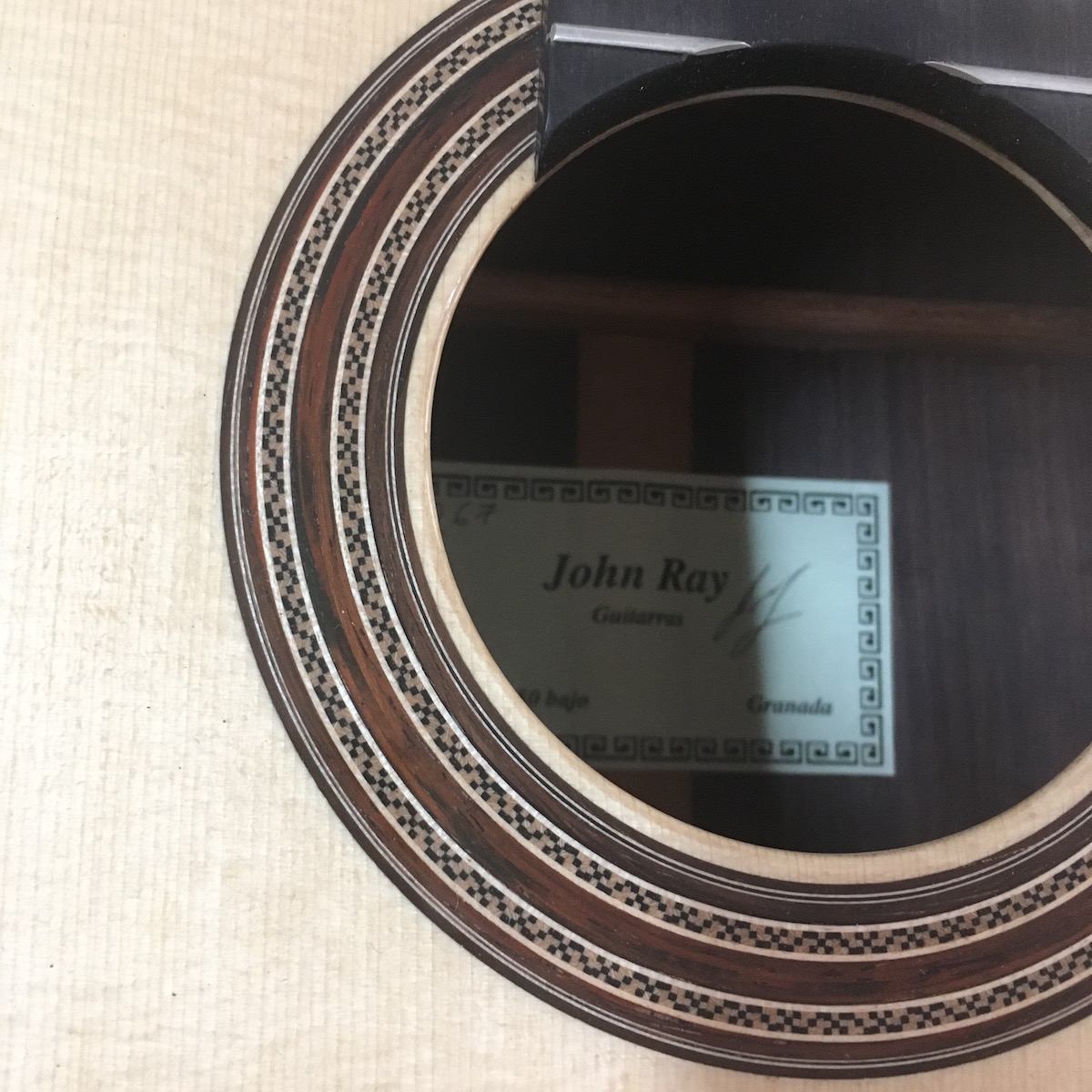
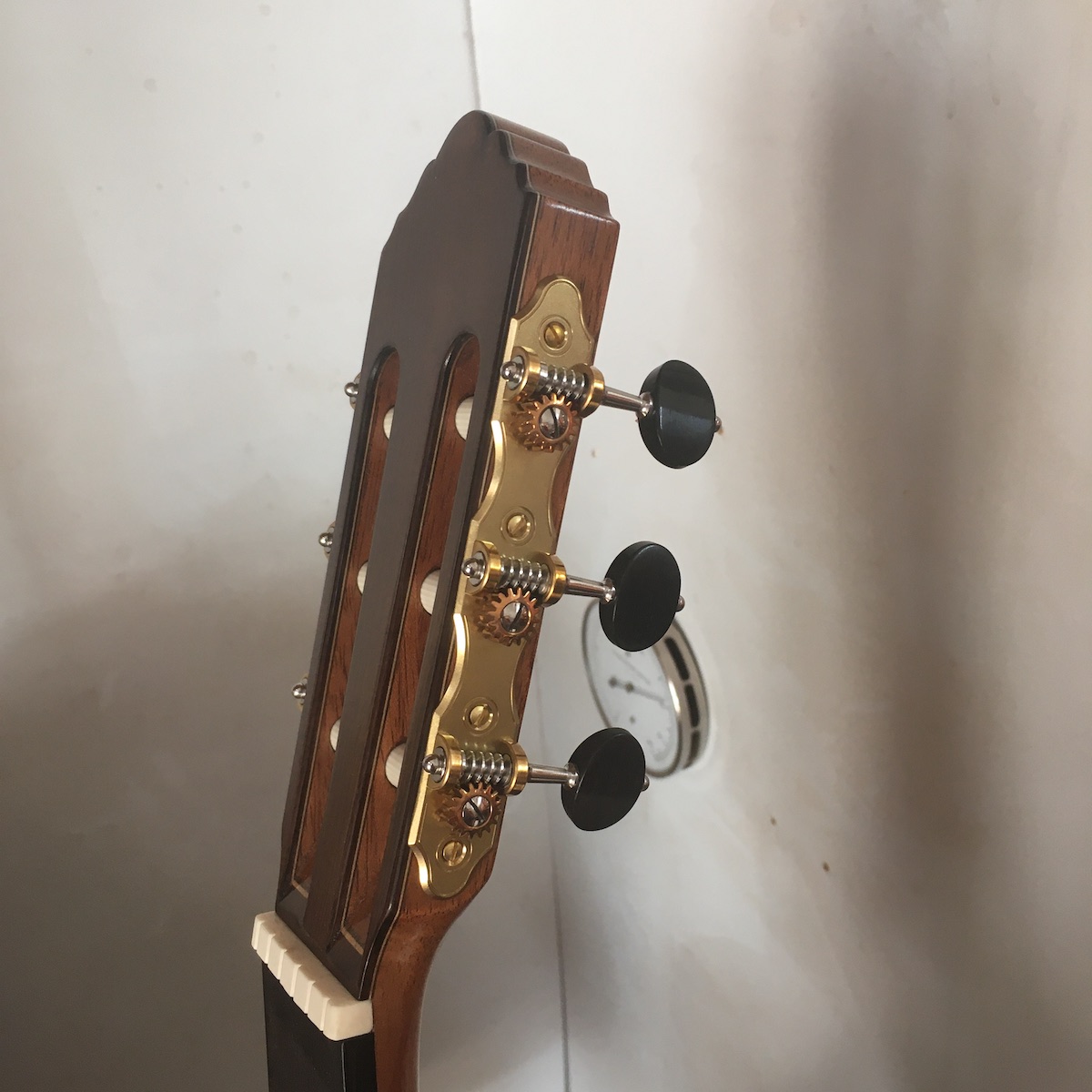
Tag Archives: granadaguitars
Glueing up Small Mosaic Tiles
I have posted about rosettes and specifically mosaics but I don’t think I have ever shown the method for making small mosaics. If they are small enough that you don’t have to give each row a wedge shape then you can use this. The setup looks like we are glueing top or back plates together and you actually have to shoot the edges of the two pieces in the same way. If you don’t usually do so you should take some time to make sure that the edges are close to square. When jointing boards it doesn’t matter but here it does. Use a chisel which fits exactly (or close) into the space between the two boards and press the strips down firmly once you have applied the glue and are ready to apply pressure with the wedge. 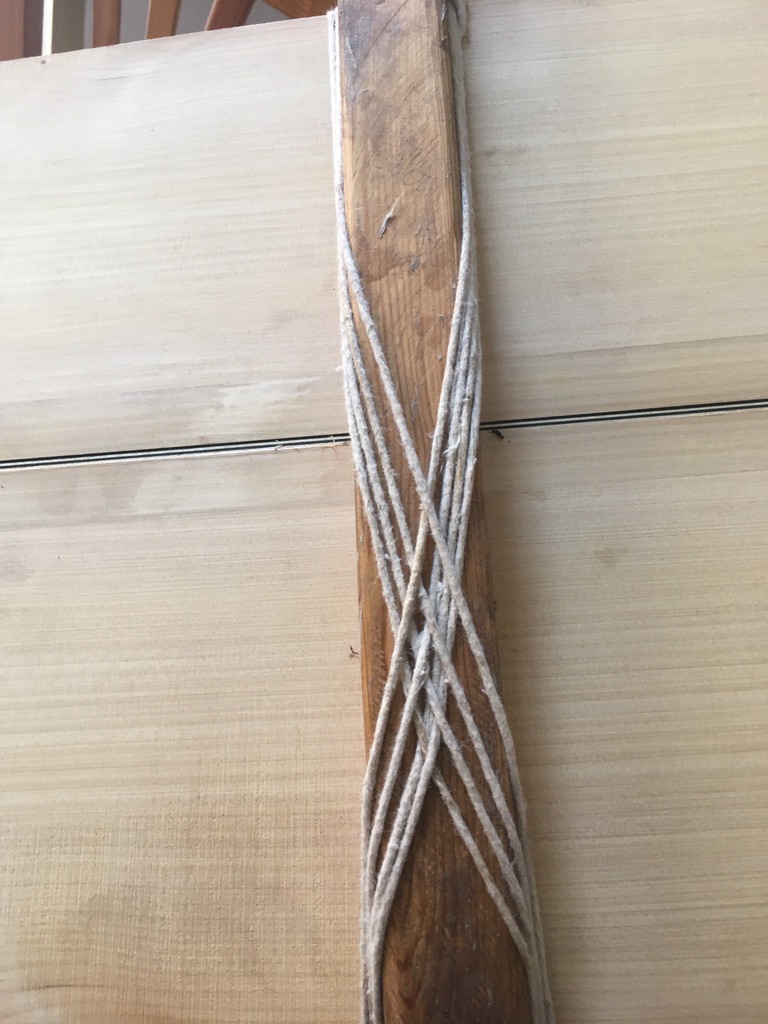 The other
The other 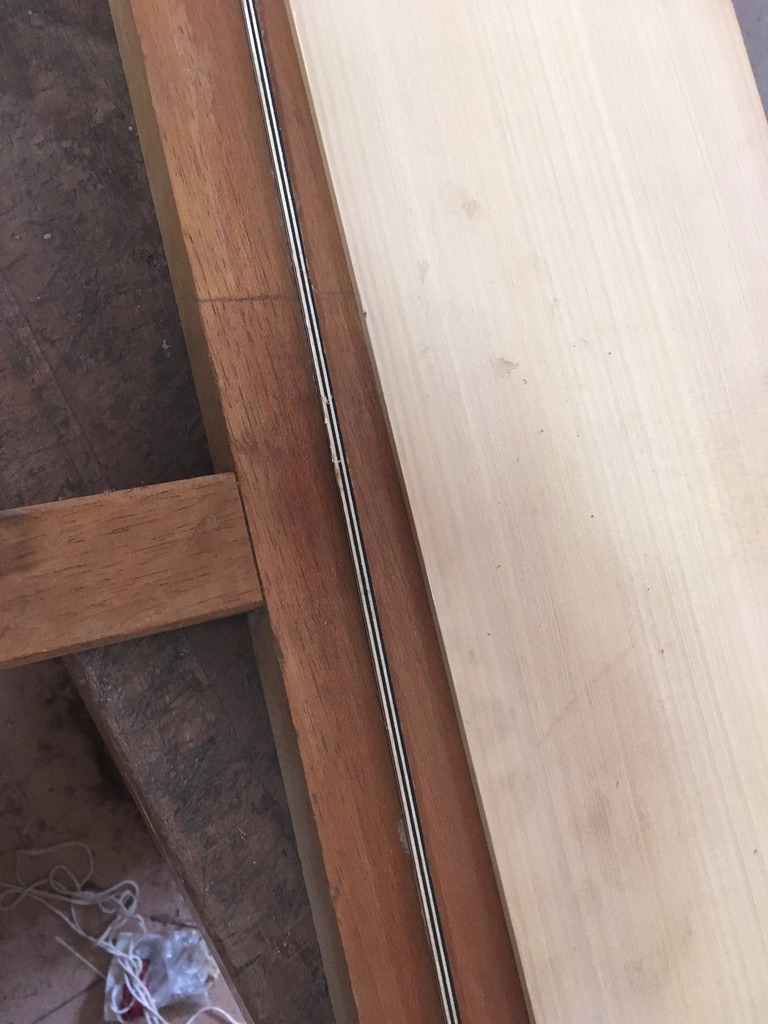
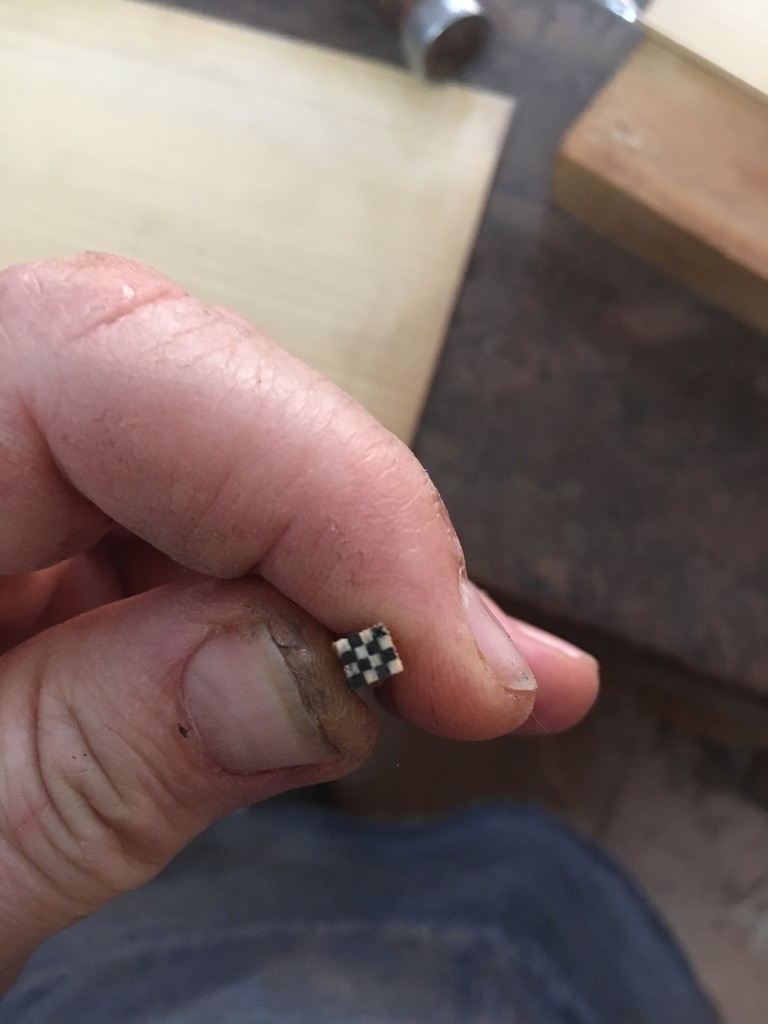 photos show the finished product. This simple checkerboard is part of the Torres rosette that I make for the SE153 copy. I use this method for any rosettes which are small enough and I do it to allow me to make 30 or 40 at a time. I end up with a strip that can be installed as if it were another veneerstrip. The reason the size is limited is that a small size will let the strip bend in a circle without breaking. Here you can see a left-over section but when I start it is at least long enough to make the full rosette.
photos show the finished product. This simple checkerboard is part of the Torres rosette that I make for the SE153 copy. I use this method for any rosettes which are small enough and I do it to allow me to make 30 or 40 at a time. I end up with a strip that can be installed as if it were another veneerstrip. The reason the size is limited is that a small size will let the strip bend in a circle without breaking. Here you can see a left-over section but when I start it is at least long enough to make the full rosette.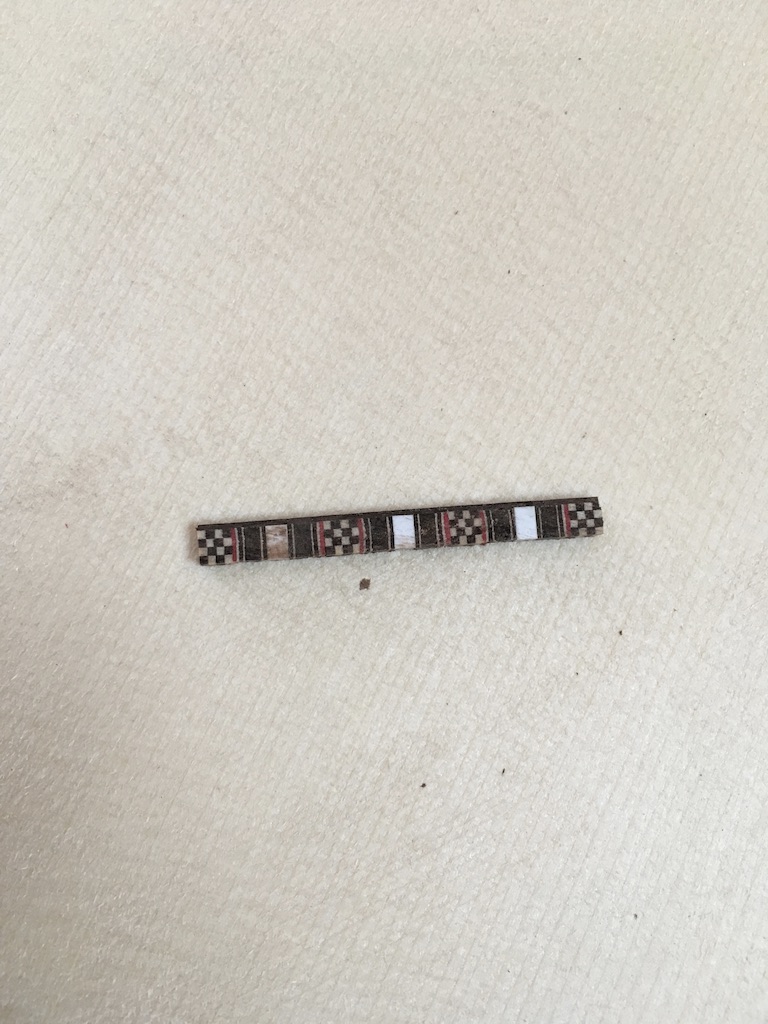
Andrea Corongiu in Córdoba
Donate to good (guitar) causes
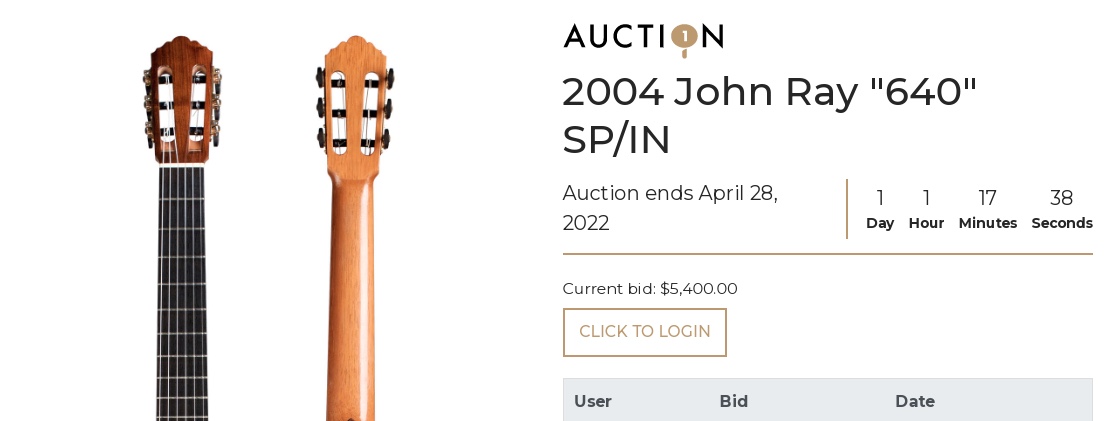 The most pressing urgencies in the world today are certainly climate change or people fleeing from mortal danger of violence or famine. However, I believe that we have enough resources in the rest of the world to address these and many other problems. I know of a few initiatives to give young people access to a musical education.
The most pressing urgencies in the world today are certainly climate change or people fleeing from mortal danger of violence or famine. However, I believe that we have enough resources in the rest of the world to address these and many other problems. I know of a few initiatives to give young people access to a musical education.
The Recycled Orchestra
Right now, thanks to a generous owner of one of my guitars and the GSI Foundation a guitar I made in 2004 is instrumental in helping young people get access to musical instruments. Place your bid now.
GuitarNcuentro GNO
The Guitar Encuentro is a yearly event organized by teachers and students of the guitar and features concerts, round table discussions and guitar exhibitions. The format seems to be somewhat flexible but I do know that we guitar-makers have attended on two previous occasions. This year we will be showing guitars at 5pm on April 23 at the Centro Albaicín in Granada.